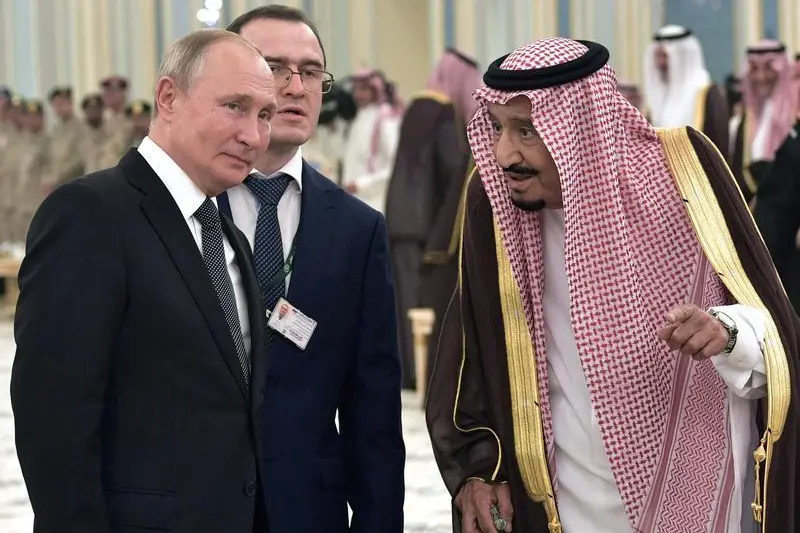PHOTO
LONDON- Oil prices jumped 8% on Thursday after U.S. President Donald Trump said he expected Saudi Arabia and Russia to reach a deal soon to end their battle for market share but gains were capped by fears of a global recession due to the coronavirus.
Benchmark Brent, which rose as much as 11% in early trade, was up 7.6% at $26.63 a barrel at 1330 GMT, while U.S. crude was up 7.8% at $21.90.
Prices, which are still down 60% on the start of the year, slipped from the day's highs as data from last week showed the number of American's filing unemployment benefit claims shot to a record high for a second week, topping 6 million.
Trump said he had spoken to the Russian and Saudi leaders and believed the two countries would make a deal to lower production and support battered oil prices.
Trump also said he had invited U.S. oil executives to the White House to discuss ways to help the industry "ravaged" by slumping energy demand during the coronavirus outbreak.
"Oil prices are seeing their biggest gains in two weeks this morning," Rystad head of oil markets Bjornar Tonhaugen wrote, adding U.S. oil diplomacy and reports that China would speed up oil purchases were "not enough to save oil prices from further declines."
Putin said on Wednesday that oil producers and consumers should find a solution that would improve the "challenging" situation of global oil markets.
A senior Gulf source said Saudi Arabia supported co-operation between oil producers to stabilise the market but blamed Russia's opposition to a proposal last month to deepen supply cuts for the market turmoil.
Moscow rejected a Riyadh-backed proposal for more supply cuts at a meeting of the Organization of the Petroleum Exporting Countries and other producers in Vienna in early March.
Kang Wu, head of Asia analytics at S&P Global Platts, said markets would be oversupplied by 15 million barrels per day (bpd) in the second quarter, requiring major curbs in May and June to balance the market. He said Brent needed to drop towards $10 to force immediate action to curtail output.
U.S. crude stockpiles rose 13.8 million barrels in their biggest weekly rise since 2016 and analysts expected stocks to keep rising as refineries curb output and gasoline demand falls.
"At the current price, many U.S. oil exploring energy companies won't be able to make a profit and drilling activities might fall in North America," CMC Markets analyst Margaret Yang said.
(Reporting by Julia Payne in London, Shu Zhang and Sonali Paul; Editing by Jane Merriman and Edmund Blair) ((Sonali.Paul@thomsonreuters.com; +61 3 9286 1419;))





















